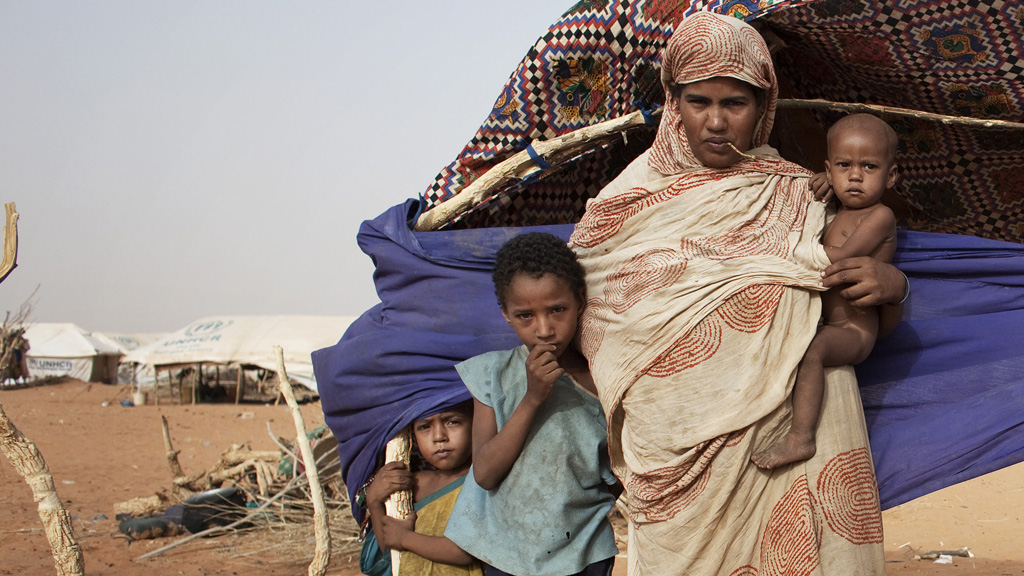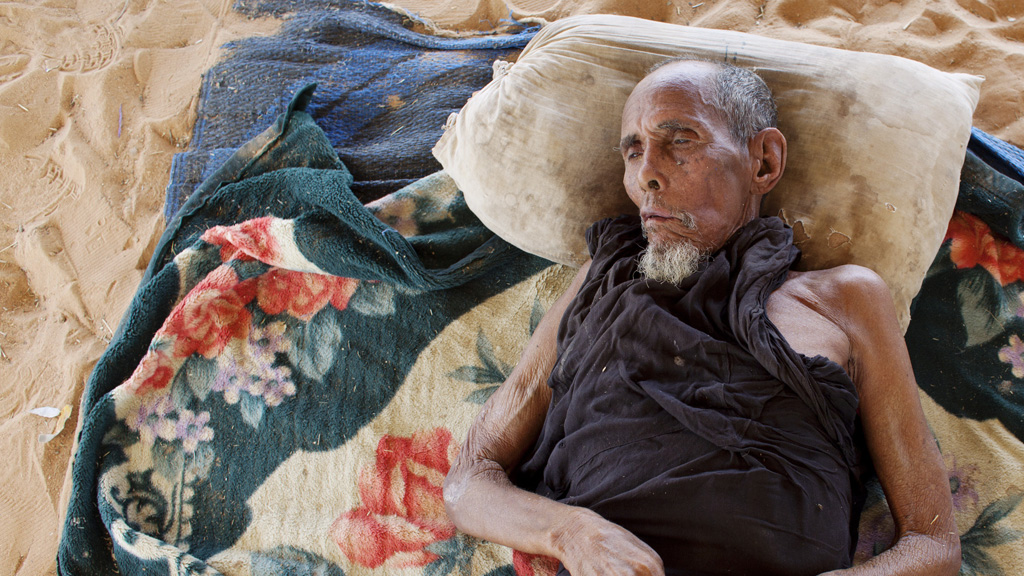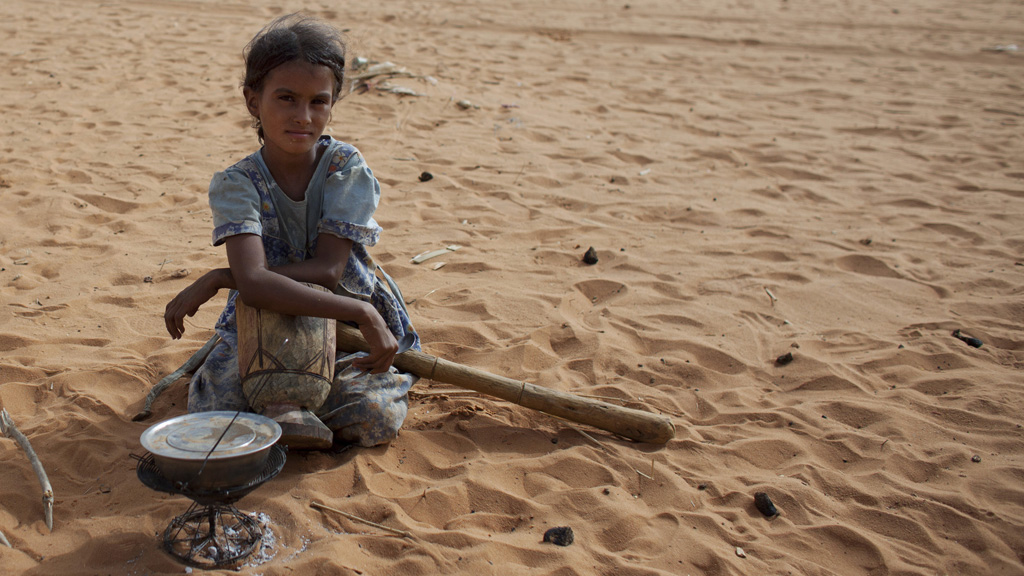Humanitarian aid for Mali refugees ‘inadequate’
Humanitarian responses to refugees fleeing conflict in Mali have been “far from adequate”, putting thousands at risk from malnutrition and the “deplorable” conditions in camps, a report warns.

Medecins Sans Frontieres reported on Friday that there have been waves of refugees fleeing over Mali’s borders into Burkina Faso, Mauritania and Niger since the start of the conflict in January 2012.
So far the humanitarian response has been far from adequate. Medecins Sans Frontieres
More than 170,000 refugees have fled to the three countries, MSF said, while around 270,000 have been displaced within Mali.
The majority of refugees are from the nomadic Tuareg community (see box, below), from which the armed uprising in January originally emerged.
Who are the Tuareg?
The Tuareg community are nomadic, pastoral Berber people who live in a large area across the Saharan region, including Niger, Algeria, Libya, Burkina Faso and Mali.
Tuareg rebels, wanting independence, initially staged an unsuccessful uprising in northern Mali between 1990 and 1992.
After the fall of the Gaddafi regime in 2011 many Tuaregs returned to Mali, leading to a rekindling of the conflict in 2012.
Medecins Sans Frontieres has been providing humanitarian aid to refugees in Mauritania, home to around 68,000 Malian refugees, and conducted 100 interviews at refugee camps to produce its report.
With the other village chiefs we took the decision to leave out of fear of the Malian army. Ibrahimou, 71, refugee
It says 65 per cent of refugees at the main Mbera refugee camp are Tuareg, with 26 per cent Arabs and the remaining 9 per cent from different ethnic groups.
Fear of reprisals
There are various reasing for fleeing Mali. MSF said nearly half of those interviewed had fled pre-emptively, remembering the reprisals agains the Tuareg community by the Malian army after the attempted uprising in 1990.
Ibrahimou, 71, cited in the MSF report, said: “With the other village chiefs we took the decision to leave out of fear of the Malian army.
“I lost brothers and cousins in 1992. I saw a lot of atrocities and I lost a lot of loved ones in the conflict. I almost lost all my animals too. This time we left early.”
Around one in four fled directly as a result of fighting between Tuareg groups and the Malian army.
Al-Qaeda takeover
Between March and July 2012 other armed groups became involved in the Tuareg uprising, including Ansar Dine, an al-Qaeda affiliated group. Ansar Dine clashed with the Tuareg rebels and took control of large parts of northern Mali. Strict Islamic law was then implemented.
When I was warned and threatened by the police because of my clothes, I preferred to leave the city permanently. Maymouna, 21, refugee
MSF said relatively few new refugees arrived in Mauritania during this period, but there was significant internal displacement.
Three of the 100 interviewees at the Mberu camp had arrived in Mauritania following the Islamist group takeover of cities such as Timbuktu, where temples and monuments were destroyed.
“After the takeover of Timbuktu by Ansar Dine, our life changed,” said Maymouna, 21. “Jihadists paid young men to join their movement. We women struggled.
“I had to cover my whole body before going out. Women no longer had the right to speak or greet people in the street. Life was very hard for us.
“My family and I stayed three months under Ansar Dine, but when I was warned and threatened by the police because of my clothes, I preferred to leave the city permanently.”

French intervention
In January 2013, following the breakdown of the Malian transitional government, French troops arrived to prevent groups in the north from advancing on Bamako, the capital city in the south.
The French invasion created panic among the Tuareg community, MSF said, leading to another wave of refugees.
Awa (not her real name), 32, said: “I fled with my family because of the bombing. They did not bomb the place where we saying, but we could hear the noise when they started bombing Timbuktu. I was afraid.
“I fled with my husand, leaving behind our livestock and some members of our family.”
Economic breakdown
However, the most recent arrivals at the camp have come from a “breakdown of economic activities” in northern Mali, leading to food shortages and a lack of basic services such as healthcare.
Life has become very hard. I had nothing to give my children. Halima, 24, refugee
Since the French invasion, militant groups have waged a campaign of suicide bombings and raids in northern Malian towns.
On Friday three Chadian soldiers, fighting alongside French troops, were killed in a suicide attack in the town of Kidal.
The first suicide attack took place at the end of January in the northern city of Gao, days after it had been captured by French and Malian forces. Pockets of militant resistance remain in Timbuktu and Gao.
Halima, 24 years old, said: “Life has become very hard. I had nothing to give my children. There was nothing to eat, shops were closed or empty. There was no market for cattle. I could not stay because I have small children to feed.”
Severe malnutrition
On arriving in the camps, MSF says, the refugees’ problems are only just beginning.

“The majority of refugees have not experienced major health problems on their journeys to reach Mauritania,” the report says. “But on arrival in the refugee camps their health condition is deteriorating rapidly – the result of poor living conditions, inadequate food, a lack of shelter and severe water shortages.”
Children in particular are suffering, the report says. There is a mortality rate of 3.22 per 10,000 amongst children under two years old, meaning between two and three times as many children are dying in the refugee camps per day than in the rest of Mauritania.
A survey of children at the Mbera camp suggested that one in five children are suffering from malnutrition, and one in 20 are suffering from the most severe form of malnutrition.
The report said refugees are entirely dependent on fod supplies from the World Food Programme, but that these supplies have not been adapted to the nutritional needs of young children.
‘Far from adequate’
Hygiene in the camps is a problem, with MSF reporting that at one stage there were only four toilets for 12,000 people.
Refugees are also living on 11 litres of water a day, in temperatures of more than 50 degrees, when recommended humanitarian standards are 20 litres a day.
In addition, refugees face a lack of shelter, with some waiting more than four weeks for shelter materials.
The report concludes: “So far the humanitarian response has been far from adequate. While the provision of water, food and sanitation has recently improved, it remains dependent on outside assistance and humanitarian aid.
“The refugee crisis is not going to go away. The majority of refugees interviewed by MSF spoke of their fears, if they stay in Mali, of reprisals by the Malian army or other ethnic groups – fears rooted in ethnic and political tensions which go back deades.
“With these issues far from resolved, combined with ongoing insecurity and economic diffculties in northern Mali, these refugees are unlikely to return home in the near future.”